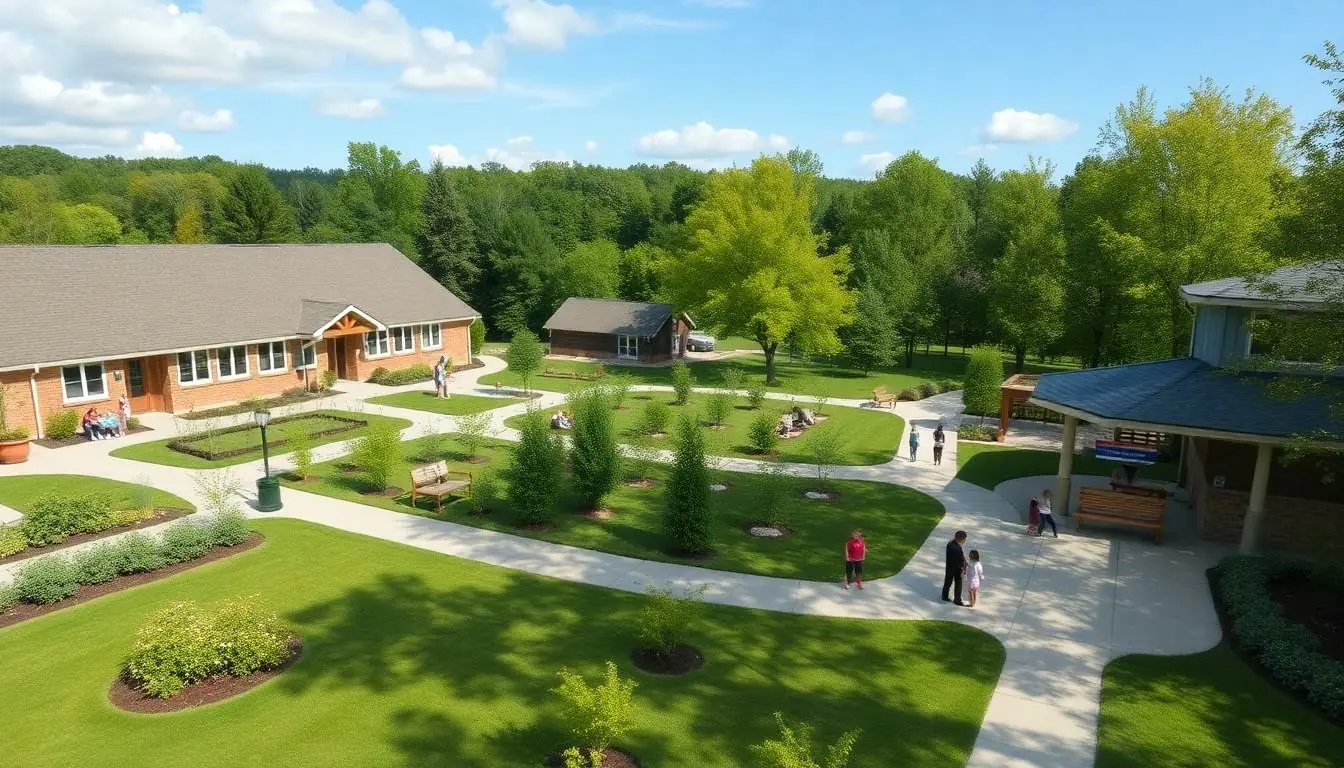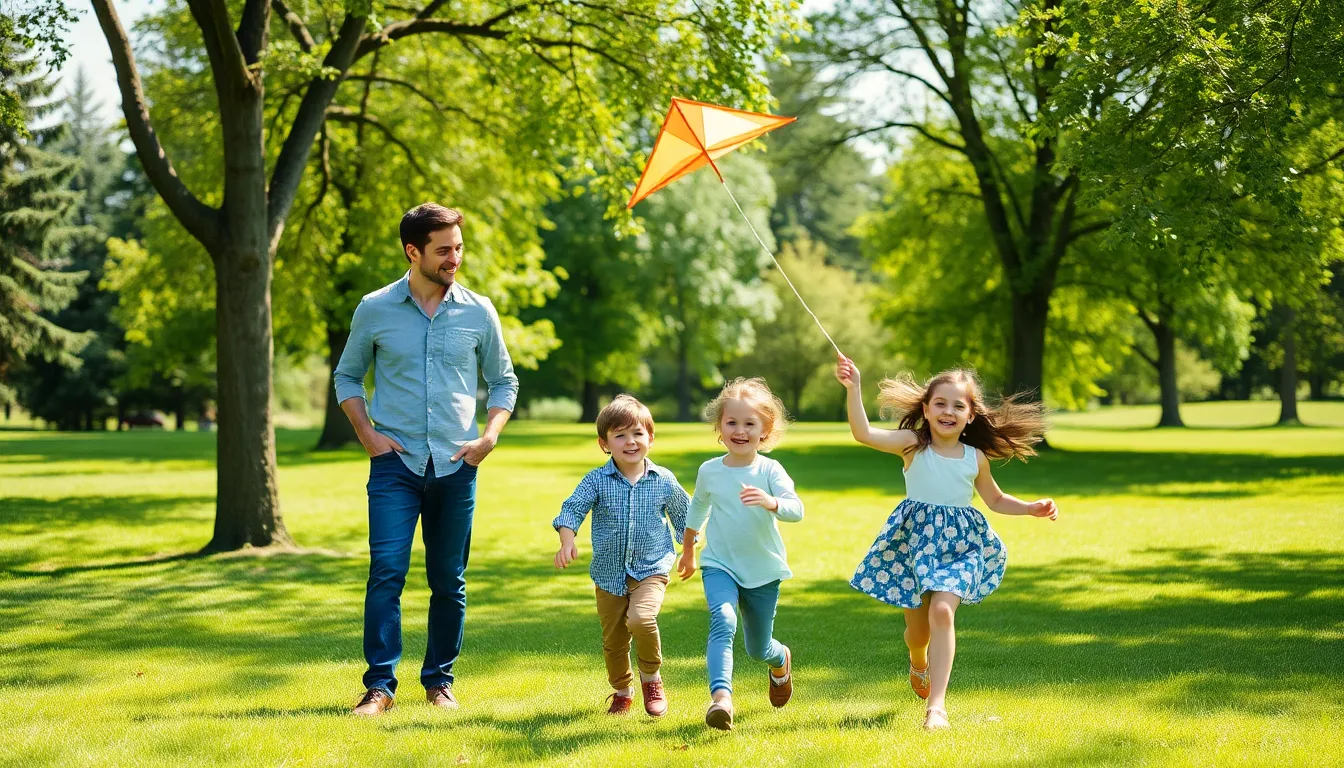Nestled in the heart of Butler Maryland Butler Montessori stands as a beacon of innovative education where children don’t just learn – they thrive. This prestigious institution embraces Maria Montessori’s time-tested philosophy combining academic excellence with personal growth in a way that’s uniquely engaging for young minds.
Since its establishment Butler Montessori has transformed countless young lives through its student-centered approach. The school’s peaceful campus spanning several acres creates the perfect environment for children to explore discover and develop their natural curiosity. With programs ranging from toddler to adolescent education Butler Montessori’s dedicated educators guide each child toward independence critical thinking and social responsibility.
Table of Contents
ToggleWhat Is Butler Montessori?
Butler Montessori stands as an accredited educational institution located in Butler, Maryland, offering authentic Montessori education for children aged 18 months through 15 years. The school delivers a comprehensive educational experience that integrates academic excellence with personal development.
Core Educational Philosophy
Butler Montessori implements Maria Montessori’s proven educational approach, focusing on individualized learning paths for each student. The curriculum emphasizes hands-on experiences through specially designed Montessori materials that promote cognitive development at each child’s unique pace. Teachers act as guides, observing students carefully to support their natural curiosity and independence. The educational program incorporates practical life skills, sensorial exploration, language development, mathematics concepts and cultural studies in multi-age classrooms.
Campus Location and Facilities
The 22-acre campus sits nestled in the rolling countryside of northern Baltimore County at 15951 Germantown Road. Natural lighting floods the purpose-built Montessori classrooms equipped with child-sized furniture and specialized learning materials. The grounds feature organic gardens, outdoor learning spaces, a gymnasium for physical education and dedicated art studios. Separate environments exist for each program level including toddler, primary, elementary and adolescent communities. The campus includes nature trails, athletic fields and science observation areas that extend learning beyond traditional classroom walls.
Educational Programs and Curriculum
Butler Montessori’s academic framework integrates specialized programs tailored to specific developmental stages. Each program incorporates Montessori principles with age-appropriate materials designed to foster independence and learning.
Toddler Program (18 months – 3 years)
The Toddler Program creates a nurturing environment focused on sensory exploration and movement. Children engage with specially designed materials that develop fine motor skills through activities like pouring, sorting and stacking. The classroom features child-sized furniture, practical life stations and language-rich materials. Teachers guide toddlers in developing independence through self-care routines, including hand washing, dressing and food preparation. The 3:1 student-teacher ratio ensures individualized attention as children master crucial developmental milestones.
Primary Program (3-6 years)
Primary classrooms feature distinct learning areas for mathematics, language, cultural studies and practical life skills. Children work with concrete materials that isolate specific concepts, such as the pink tower for dimension recognition and sandpaper letters for phonetic awareness. The mixed-age setting allows older students to mentor younger peers while reinforcing their own knowledge. Daily activities include individual work periods, small group lessons and outdoor exploration. Students progress from concrete to abstract thinking through hands-on experiences with Montessori materials.
Elementary Program (6-12 years)
Elementary students explore an integrated curriculum spanning mathematics, language arts, sciences and humanities. The program emphasizes research skills, critical thinking and collaborative projects. Students participate in weekly field trips, conduct independent studies and manage their own work schedules. The classroom contains advanced Montessori materials for complex mathematical concepts, grammar analysis and scientific experiments. Elementary groups engage in community service projects, student-led conferences and entrepreneurial activities that connect academic learning to real-world applications.
The Montessori Teaching Method at Butler
Butler Montessori implements authentic Montessori pedagogy through three core components: individualized learning, carefully prepared environments, and mixed-age classrooms. Each element supports the development of independent, confident learners.
Individualized Learning Approach
Teachers at Butler Montessori observe each student’s interests, abilities, and learning pace to create personalized learning paths. Children engage with Montessori materials at their own pace, mastering concepts through hands-on exploration and repetition. Students select activities from curriculum areas including practical life, sensorial development, language, mathematics, and cultural studies. Teachers document progress using detailed observation records and guide students to increasingly complex materials as they demonstrate readiness.
Prepared Environment
Butler Montessori classrooms feature meticulously organized spaces with child-sized furniture and accessible learning materials. Each environment contains specialized Montessori materials arranged on open shelves by subject area and difficulty level. Natural lighting, plants, and artwork create a calm atmosphere conducive to concentration. The classroom design promotes independence by allowing students to move freely, choose work spaces, and access materials without adult assistance.
Mixed-Age Classrooms
Butler Montessori groups children in three-year age spans, creating dynamic learning communities. Younger students learn from observing older peers while older students reinforce their knowledge through teaching. Teachers guide 25-30 students per classroom, maintaining a balanced mix of age groups. This structure enables natural mentorship opportunities, fosters leadership skills, and supports social development through collaborative projects.
Faculty and Staff Expertise
Butler Montessori’s educational team consists of certified Montessori teachers with extensive training in child development. The faculty combines academic expertise with practical experience to create an enriching learning environment that supports each child’s individual growth path.
Teacher Qualifications
Each lead teacher at Butler Montessori holds Association Montessori Internationale (AMI) or American Montessori Society (AMS) certification. Teachers complete a rigorous 9-month training program covering Montessori philosophy, child development principles, classroom management techniques. The academic team includes specialists with degrees in early childhood education, elementary education, special education. Assistant teachers possess relevant certifications in childcare development along with specialized Montessori training. The faculty maintains a 1:8 teacher-student ratio in primary classrooms, 1:12 in elementary programs, ensuring individualized attention for each student.
Ongoing Professional Development
- Advanced Montessori material presentations
- Special needs accommodation strategies
- Positive discipline techniques
- Cultural competency training
- Environmental education methods
- Child safety certifications
Parent Involvement and Community
Butler Montessori recognizes parents as essential partners in children’s educational journey. The school cultivates an active community through structured programs, regular communication and collaborative events.
Parent Education Programs
Monthly workshops equip parents with Montessori principles and practical implementation strategies at home. Topics include child development stages, independence building techniques and conflict resolution methods. Parents participate in classroom observations followed by guided discussions with teachers to understand their child’s learning process. The school offers a dedicated parent resource library containing books, articles and videos about Montessori education. Regular parent-teacher conferences provide individualized insights into each child’s progress across academic social emotional domains.
School Events and Activities
The school calendar features community-building events throughout the academic year. Fall Festival celebrates seasonal changes with outdoor activities like pumpkin carving, nature walks and harvest-themed games. Parents organize classroom material-making sessions to support the learning environment. Spring Fair showcases student projects through interactive demonstrations galleries displays. Family picnics potluck dinners foster connections between school families. Cultural celebrations expose children to diverse traditions through food, music art presentations. Parent volunteers contribute to gardening projects, library organization field trip supervision creating a collaborative learning community.
Conclusion
Butler Montessori stands as a testament to educational excellence where traditional academic rigor meets innovative learning approaches. The school’s commitment to authentic Montessori education creates an environment where children thrive through personalized learning experiences and dedicated mentorship.
The combination of expert faculty qualified learning spaces and strong community engagement makes Butler Montessori an exemplary choice for families seeking comprehensive child development. Through its holistic approach students develop not just academic prowess but essential life skills that prepare them for future success.




